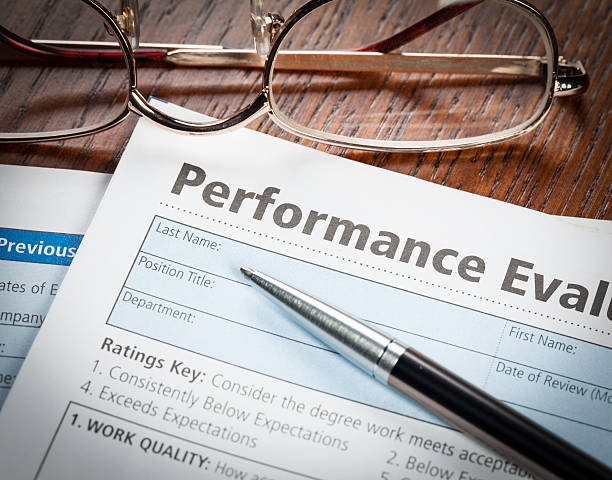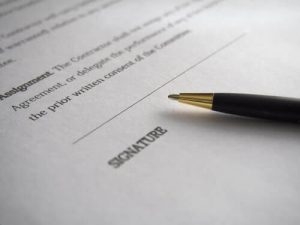While there is no legal requirement to carry out a return to work discussion following an employee’s absence, there are numerous benefits in doing so. Such discussions are an important part of absence management and ensuring managers are aware of any issues potentially affecting a staff member’s ability to carry out their role effectively.
In general, return to work meetings are an opportunity to:
- Ensure staff are ready to return to work,
- Gain an understanding of any specific health conditions,
- Consider whether any adjustments are necessary to enable them to return to their full duties and/or sustain good attendance levels,
- Review absences records/patterns,
- Consider whether any further input is needed; for example seeking a medical report.
Short Term Absence Return to Work Meeting
When a staff member has been absent for a short period of time for a minor ailment and the absence record is not generally problematic, then the discussion may be fairly brief and routine. The meeting is an opportunity to:
- Check the reason for the absence and ensure the staff member is now fit for work.
- Ensure appropriate documentation has been submitted (for example a self-certification form, or if the absence has extended beyond 7 calendar days, a fit note).
- Remind the staff member of their absence record over the previous 12 months.
- Where triggers apply in relation to absence management, advise the staff member what those are.
If the staff member has not followed the absence reporting procedure their understanding of the reporting process should be checked and they should be asked why they did not report their absence in line with the established process. Depending on the circumstances and responses, it may be appropriate to consider if further action is required under the disciplinary process.
Where the absence record is problematic; for example a trigger under an absence management policy has been hit, or where triggers are not used the absence is generally regarded to be higher than the organisation will tolerate, the employee should be advised of this. The previous absences recorded should be discussed and checked to ensure that records are accurate. If appropriate, it may be necessary to arrange a separate more formal meeting to consider formal action in relation to levels of absence. If that is required, the employee should be informed they will receive a separate letter in that regard.
In some cases, it may be appropriate to consider obtaining a medical report (see below).
Long Term Absence Return to Work Meeting
Where an employee is returning from a long-term absence, the Return to Work meeting is likely to be more detailed and involved.
The meeting is an opportunity to:
- Welcome the employee back to work.
- Discuss the absence record; dates and reasons and ensure records are accurate.
- Ensure that appropriate documentation has been submitted; a self certification for the first week and fit notes covering the absence from the 8th calendar day of absence until the return to work date.
- If the employee did not follow the absence reporting procedure their understanding of the reporting process should be checked and they should be asked why they did not report their absence in line with the established process. Depending on the circumstances and responses, it may be appropriate to consider if further action is required under the disciplinary process.
- Ask the employee how they are feeling; do they now feel fit to carry out the full range of their duties?
- Ask if they have received any medical advice with regard to their return to work; is their GP aware of the nature of the work they do and are any adjustments to this required? If their doctor has not advised of anything, do they themselves feel able to carry out the full range of their duties or are any adjustments required? Discussion about potential adjustments should be a two way discussion with both the employee and manager considering what may be necessary and reasonable.
- It may be necessary to understand any treatment they are currently having or any medication they are taking and consider any side effects/potential impact on their role.
- Consider whether a risk assessment is needed.
- Consider whether a medical report is needed (see below).
- Ask if there is anything else they wish to add or any further information they feel you should be aware of.
- Update them on any news since they left in terms of operational developments or changes in staffing etc.
Reasonable Adjustments
If an employee is disabled, employers must make reasonable adjustments; for example, by making changes to the workplace, working arrangements, changing the way in which something is done or by providing additional support or equipment. The return-to-work meeting provides an opportunity to review any adjustments in place or consider if any are needed at this time.
Seeking a Medical Report Return to Work
Sometimes it may be necessary to consider requesting consent for a medical report following a return-to-work meeting. Circumstances in which this may be considered include:
- In short-term absences where the level of absence is concerning and may lead to formal action being taken, however there appears to be an underlying medical condition that may impact on the level of attendance.
- Where a medical condition appears to be impacting on an individual’s ability to carry out the full range of their duties to an acceptable level.
- Following a longer-term absence if further advice is required in relation to a phased return to work or potential changes to hours or duties.
- If the employee is disabled, to seek further advice on reasonable adjustments.
A medical report may not always be necessary in the circumstances described above and if the manager is unsure if one is required, advice should be sought.
Emergency Dependent Leave
Employees have a statutory right to take time off to help a dependent in an emergency. A dependent could be a spouse/partner, child, parent or someone in the same household.
Employees cannot suffer detrimental treatment for exercising their right to take emergency leave. This means that leave in relation to care of dependents is excluded from the absences counted for absence management purposes.
Return to work meetings are therefore important tools in managing leave taken for care of dependents. It allows managers to further understand the particular circumstances of the absence and to determine if it was emergency leave. The statutory right is to take reasonable time off to take necessary action in relation to unexpected or sudden events involving a dependent. This will include times, for example, a child is ill and cannot attend school or nursery and the employee has had to remain at home to look after them and/or make alternative arrangements. It would also cover an employee providing assistance to an elderly parent in an emergency. Where time off is taken for reasons that were foreseen, this may not be considered to be emergency leave.
The return to work meeting following an emergency dependent leave absence is an opportunity to:
- Discuss the particular circumstances of the absence.
- Discuss any previous emergency dependent leave absences/patterns.
- Where the number of absences taken are becoming high:
- Determine whether any contingencies could be put in place to lower absence levels.
- Determine whether there are others also responsible for the dependent and if so, whether they are sharing that responsibility in emergency situations (for example when absence relates to care of a child, whether the other parent has also stepped in on occasion to enable the employee to work). If not and it is always falling to the employee to take time off, can that be rectified?
- Discuss whether any changes to working arrangements (for example hours) may assist in lowering absence levels.
Return from Maternity/Parental Leave Meeting
It is also good practice to carry out a return to work when an employee has returned from a period of maternity leave/parental leave, which in most cases will have been a longer-term absence.
In these circumstances, the return to work meeting is an opportunity to check with the employee how they are feeling about their return to work, update the employee with regard to any changes in the workplace during their absence, review any training requirements and signpost the employee to any updates to policies and procedures that have occurred.
If the employee wants to request any changes to their terms and conditions, for example hours, this will normally have already been managed prior to their return to work. However if it is requested at the return to work meeting, the employee can be directed to the Flexible Working procedures.
Record Keeping Return to Work Meeting
It is important that return to work discussions are documented and held in the employee’s personnel file, in compliance with GDPR requirements.
If you require help or advice on conducting return to work meetings or anything HR / Employment Law related – contact us on 033 33 215 005 or email websiteenquiries@wirehouse-es.com




